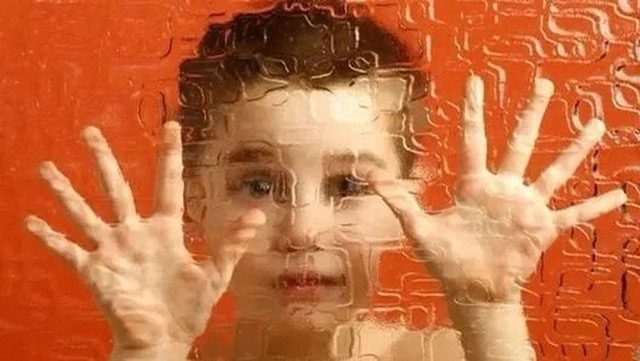Many people wonder, why don’t they have any memories from before the age of 6? In fact, according to psychological research, human memory develops gradually during childhood.
Before the age of 6, a child’s brain structure and function are still rapidly developing, which means their memory system is not yet fully formed. This development of memory capability is closely related to the process of adjusting neural connections and forming synapses in the brain.
First of all, memories in early childhood are primarily sensory memories, meaning they are formed when external stimuli are received through the sensory organs. This type of memory relates mainly to the perception of sensory stimuli such as touch, taste, and sight.

Children under 6 have poor memory capabilities. (Illustrative image).
Since a child’s brain has relatively low capability to process these sensory stimuli, memories of initial experiences gradually fade away or become difficult to recall. Secondly, memory in children primarily consists of procedural and motor memory. During this stage, children gradually develop spatial awareness and motor coordination, while important brain areas such as the cortex and hippocampus also begin to develop.
However, because early childhood memories are still relatively brief and susceptible to interference, memories formed before the age of 6 are not stable enough for long-term storage.
Additionally, there is a hypothesis suggesting that memories before the age of 6 are limited by language development. Language is an important tool for human thought and memory, and children under 6 are gradually acquiring language skills. Early language acquisition can overwrite or alter the expression of memories from initial experiences, thus affecting the retention and recollection of memories before the age of 6.
In summary, children under 6 have poor memory capabilities, which is why many people cannot recall memories from this time when they grow up.
Factors Affecting Memory

In fact, human memory is often influenced by many factors. (Illustrative image).
First, genes play an important role in the formation and expression of memory. There are genetic differences in memory capability among individuals. Some genes are associated with memory function, regulating neurotransmitters, etc. Variants in these genes can affect the formation and maintenance of memory.
Second, external stimuli and environmental factors play a crucial role in forming and reinforcing memory. For example, repetitive learning, emotional experiences, and concentration can enhance memory capability. Furthermore, the richness of the external environment and the diversity of stimuli can also promote memory development.
Third, memory is closely related to the structure and function of the brain. Physiological factors such as hyaluronic acid content in the brain, density of synaptic connections, and neuronal health can influence memory capability. For example, brain regions such as the hippocampus and temporal lobe are involved in memory formation and storage.
It is noteworthy that memory is a flexible ability, and people can improve their memory through learning and practice. For instance, intentional practice, memory techniques, and memory training can all enhance a person’s memory capability. Effective learning strategies and repetitive reinforcement facilitate the encoding and storage of information.
Fourth, emotions and attention have a significant impact on memory. Emotional factors can enhance or weaken memory effects, and the allocation and concentration of attention also play an important role in processing and storing information.
Fifth, age affects memory. As people age, their memory capability tends to decline. Memory issues in the elderly may be related to health factors such as brain aging and neurodegenerative diseases. Physical health and sleep quality can also affect memory. It is important to note that these factors interact with each other and have related impacts on memory. Therefore, human memory capability is a complex process influenced by many factors.

You can train your memory through number games and puzzles. (Illustrative image).
Effective Ways to Improve Memory
First, individuals should maintain a healthy lifestyle. It is best to get enough sleep since high-quality sleep helps consolidate memory. Additionally, we should maintain a balanced diet and consume rich nutrients such as vitamins B, C, and E, and Omega-3 fatty acids, etc. Furthermore, regular exercise can promote blood circulation in the brain and improve memory and cognitive function.
Moreover, people can enhance their memory by applying some effective memory techniques. For example, individuals can use the method of memory palaces to strengthen memory by linking the content they want to remember with familiar locations. Enhancing memory by connecting information to be remembered with existing knowledge is also an effective approach.
However, distractions can make it difficult for you to remember data. Therefore, you need to try to minimize distractions, choose a quiet learning environment, turn off your mobile phone and other devices that may hinder concentration to improve attention and focus. In your spare time, you can also exercise your memory through number games and puzzles to train your brain’s memorization ability. Additionally, learning new skills and languages can stimulate brain development.
Excessive stress can also negatively impact memory. Therefore, it is best to learn how to reduce stress to improve memory and cognitive abilities. Overall, human memory is often influenced by many factors and cannot be generalized.


















































